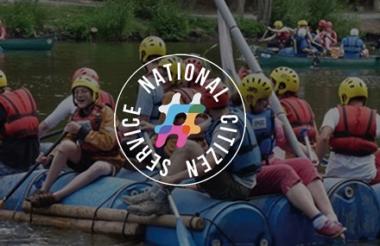Having spent some years out of the limelight the National Citizens Service became mainstream news recently. In a serendipitous development, following the release of the Civil Society Strategy, we learnt that government is looking at a ‘NCS 2.0’.
It’s something we at NPC have been thinking about for a while, and we’re cheered that they’re looking at both new models of delivery, and methods of evaluation.
And yet, literally billions of pounds have been put into this initiative, since it was first announced in 2010, some would say for not a lot of gain relative to having put the money into something else like keeping youth clubs open. So, if we are to push ahead, it’s worth asking—what are we trying to build? Assuming it keeps its stated goals of, social cohesion, mobility and engagement, what would an ideal NCS or NCS 2.0 look like?
Three principles
We think it would be guided by three principles; Place and Targeting, New Collaborative Models and Evaluation.
First, Place and Targeting. It should go without saying that teenagers from Toxteth, Tottenham, and Tunbridge Wells are likely to have quite a different experience of life, probably face different challenges and have different motivations to get involved with the NCS, or any youth service. Through acknowledgement and accommodation of this, a national program with national standards can make itself appealing to all kinds of young people.
Teenagers, perhaps more than adults, are confined to their ‘place’ and it holds a special significance both in their own minds and attempts to work with them. The organisations who have been and are working with young people where they live are best placed to understand this, and therefore we believe, have the best chance of reaching and influencing them.
Part of this, is facing the fact that some places offer more advantages than others. We know the government has allocated £90m for a separate service to help the most disadvantaged young people into work
That is obviously good but, an ideal NCS that was serious about social cohesion would make special effort to target the most disadvantaged places and use the knowledge of local charities and community groups to bring disadvantaged young people into the program. Put bluntly, well off kids surely do not need another Duke of Edinburgh Award type initiative.
Place-based work
Doing this place-based work well feeds into our second proposed principle, New Collaborative Models.
This means joining up the work of the NCS and its partners with all the other actors trying to work with and influence young people in one way or another. That might be schools, charities, community organisations but it can also mean organisations who influence young peoples lives indirectly, such as housing associations, local authorities and even the police. Even if the NCS receives less funding in future it will still be one of the largest purchasers of youth services in the country. The ideal NCS 2.0 will seek to understand where it sits in this system, in the place where it is delivering, and tailor its spending to complement others work or bridge gaps.
It will also commission collaboratively in its own supply chain. As we advocate working closely with smaller organisation the contracts that form these relationships have to be fair, deliverable and long enough term to provide stability for smaller charities to deliver.
Finally, if it is going to achieve the other two principles while offering a quality experience for young people, NCS 2.0 is going to need Evaluation running through its veins. It will need to be able to assess and compare its work with different partners, in different places, to make sure it is having the most impact it can. This is not simple. The framework must be loose enough to allow for difference and flexibility, but rigorous enough so that the NCS’s core goals are achieved and make sure it is more than just an enjoyable summer camp.
It seems that government is moving towards some of these kind of ideas with their reforms. We urge them to be bold. With the funding it receives the NCS hold huge power and in these difficult times, it’s goals of social cohesion and mobility seem more important than ever.
|
Related articles












